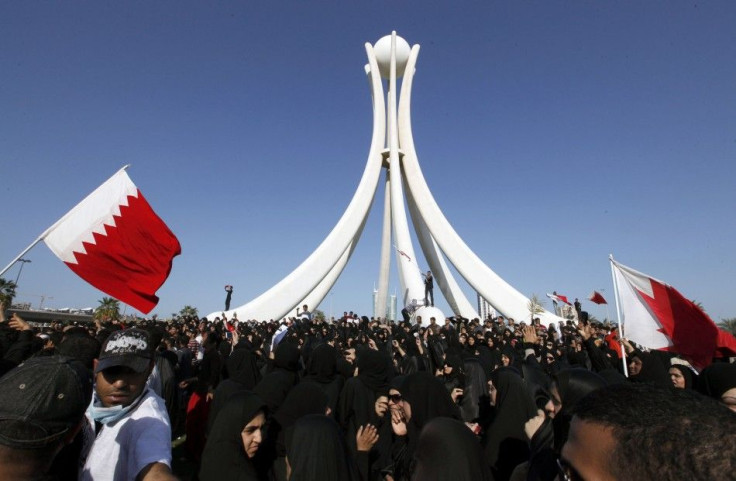Internet, Social Media may trigger change in Libya, Iran, Bahrain as protests continue

As protests inspired by Tunisian and Egyptian revolutions spread across the Arab World, internet and social media platforms which emerged as potent tools for churning up dissent in the earlier movements continue to play a crucial role even in the latest upheaval in Libya, Bahrain as well as in Iran.
Protests Spark Off in Libya
Demonstrations seeking the ouster of government sparked off in Libya on Wednesday when hundreds of protesters took to streets in the city of Benghazi. The unrest was sparked off by the arrest of an outspoken critic of the government and human rights lawyer Muammar Gaddafi. Although the lawyer was released, the protests continued.
Quoting witnesses, media reports state that protesters in the port city chanted slogans demanding the resignation of Prime Minister Baghdadi al-Mahmoudi. In fact, Muammar Gadhafi, who has ruled the nation for more than 40 years since a coup in 1969, has also come under pressure.
Reports suggest that the protesters clashed with police as well as pro-government civilians leading to some injuries.
Boiling Bahrain turns peaceful after King's assurances
Meanwhile in Bahrain, thousands gathered for the peaceful funeral procession for a Bahraini man, who was killed when clashes erupted during the another protester's funeral procession. So far, the procession has been peaceful as there is no interference from the police.
The atmosphere turned to calm after the Persian Gulf island's king has not only vowed to investigate the killings allegedly use of pellet guns at short range by Bahrain's security forces but also to consider reforms. On Tuesday, King Hamad bin Isa Al Khalifa announced on television that a committee would be set up to study proposed reforms.
Bahrain is ruled by a Sunni Muslim royal family.
Opposition-fueled movement in Iran
Iran plunged into turmoil on Monday, when thousands of supporters of opposition leaders Mir Hossein Mousavi and Mehdi Karroubi took to the streets in solidarity with the opposition movements in Tunisia and Egypt. Clashes ensued leading to two deaths. While Opposition claimed 1,500 people have been detained, official figures stand at 150.
Fresh clashes erupted in Tehran on Wednesday during the funeral of a student killed in anti-government protests. The funeral procession of the student, identified as Saneh Jaleh (26) started at Tehran University in the centre of the capital. Pro-government and anti-government protesters clashed during the procession.
Internet, Social Media continue to be weapons as well as information outlets
The dissidents in Bahrain, Libya and Iran are not only following the footsteps of their counterparts in Egypt and Tunisia by taking a pro-democracy stand, but have also chosen the same tools to mobilise the revolution - internet. Besides aiding the protests, internet and social media have also emerged as an information outlet for the worldwide media and people across the globe.
Even as the April 6 Youth Movement, the force behind the Egypt revolt, posted an update on Facebook brushing aside some activists' fear the revolution was being hijacked by the army by declaring full faith in our honorable military forces, people of Bahrain and Iran used the social networking site to disseminate latest information regards the protests.
The Facebook group True Royal Democracy, dedicated to the anti-government movement in Bahrain, on Wednesday posted photograph of Fadhel Al-Matrook, the protester who was killed in Tuesday's clashes, with his son and daughter.
31-year-old Maltrook was killed in Tuesday procession for Ali Abdulhadi Mushaima, who was killed Monday. Matrook was hailed a martyr in the funeral gathering on Wednesday.
In Iran, Activist Saeed Valadbaygi is maintaining a Facebook commentary on the protests. The posts page on the social networking site, called Revolutionary Road by Saeed Valadbaygi, include photos and the latest news on the unrest.
The latest post read: #Iranelection #Iran to our sources among the widespread presence of Security forces, Basij and implementation of Garrison atmosphere at the university, at least 5 people have been arrested during Sane Zhaleh's funeral.
While activists from the Iran and Bahrain are active on Facebook, Libyan protesters have taken to Twitter.
The hashtag #Feb 17 being used indicated that the protests were originally meant for Feb. 17 but the movement started early in Benghazi.
Meanwhile, the news agency Associated Press has come under attack on the microblogging site for misreporting that the protests were not targeted at Gadhafi.
Libyan4Life posted, @SMH @HuffingtonPost @AP Protests in #Benghazi were solely towards #Gaddafi despite direct evidence, continue to report misinformation #Feb17
Cyrenaican tweeted, They say the revolution will not be televised. Fine. Can we at least get it reported correctly? @AssociatedPress #Benghazi #Feb17 #Libya
The line in the AP report, which was carried by several other media outlets, that prompted the Twitter outrage said, The crowds, however, did not appear to direct their anger at Muammar Gaddafi.
YouTube/ Video-Sharing
While Facebook and Twitter is being used for text-based posts, videos of the protests across the Middle East and North Africa have emerged on the popular video sharing website Youtube.
A Libyan user has posted a video footage of last night's protest on YouTube.
Videos of Bahrain protests in Manama's Pearl Roundabout has also hit the internet. Mobile phone footage is available on another video sharing site called Bambuser.
© Copyright IBTimes 2024. All rights reserved.





















